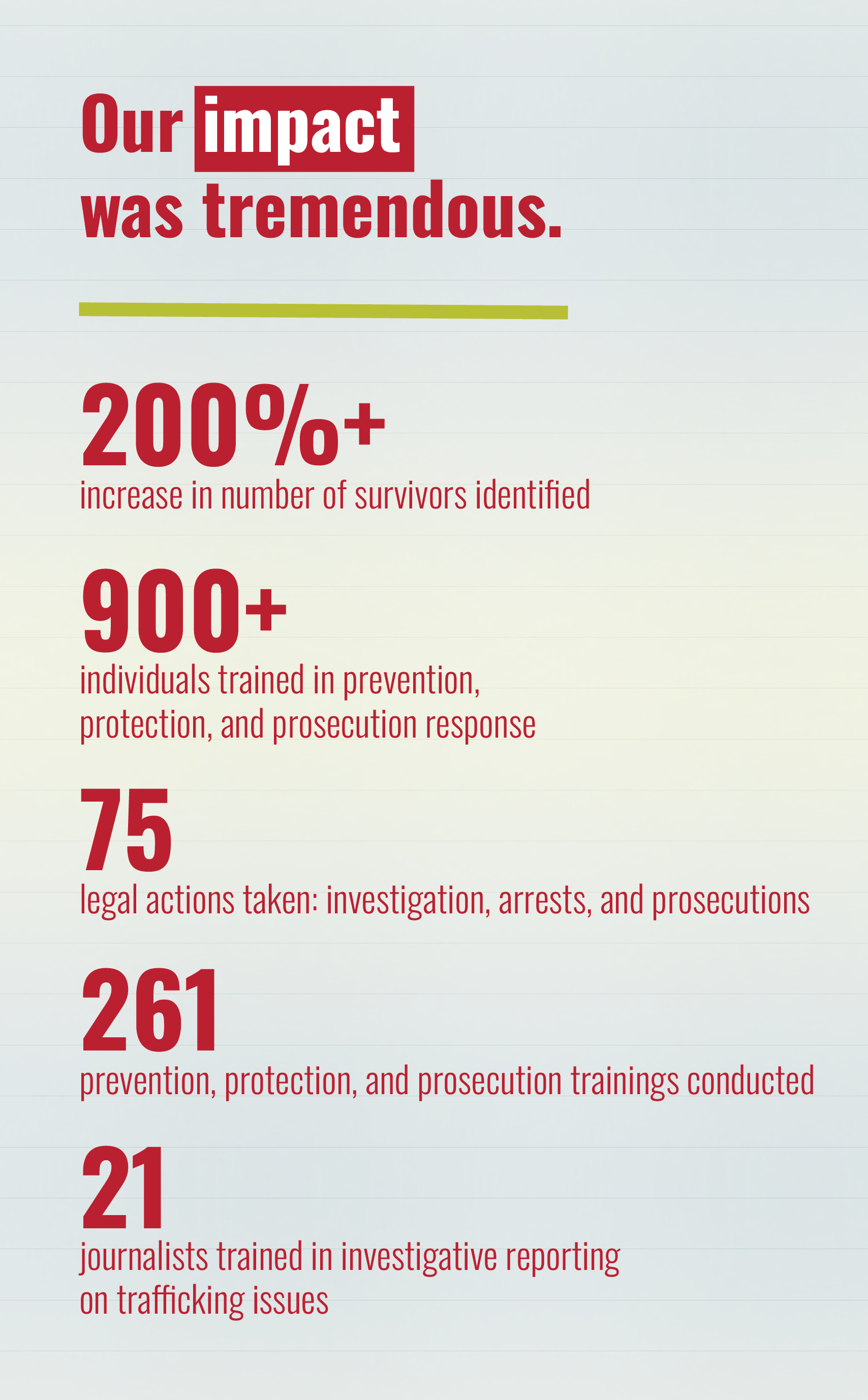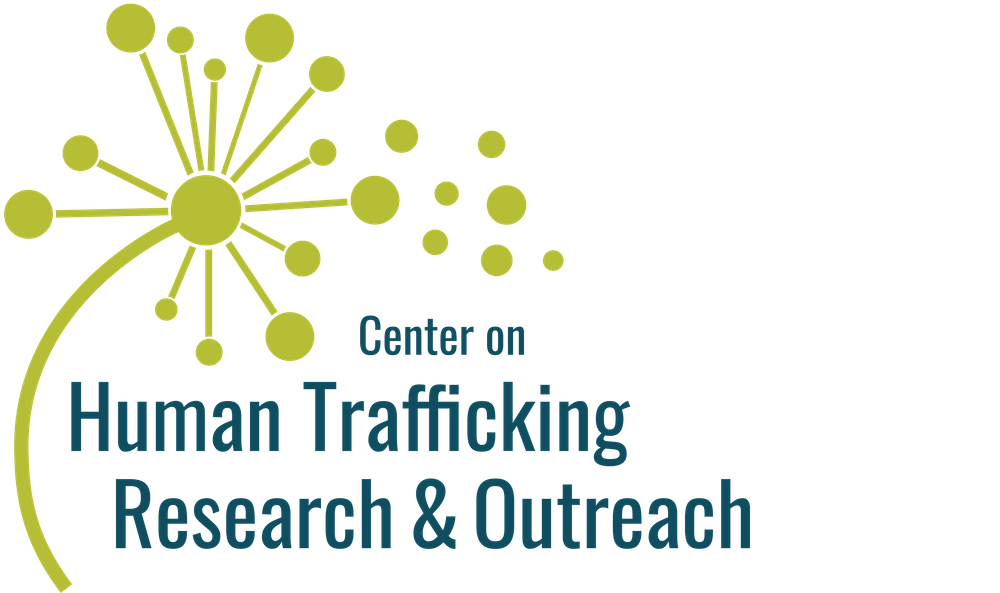Child Trafficking Reduced in Four Sierra Leone Districts
Friday, November 15, 2024
 |
|||
|
An international partnership launched evidence-based programs in Kailahun, Kambia, Kenema, and Kono. It led to a significant improvement in the lives of children across Sierra Leone. |
|||
|
|||
|
Children in four Sierra Leone districts are now experiencing human trafficking at a significantly lower rate than they were five years ago. This reduction is the result of a concerted effort by international organizations, in partnership with the Government of Sierra Leone and its people. Across the country, the effort to combat human trafficking has increased at a great scale, promising a brighter future for all Sierra Leone children. Beginning in 2018, the Center on Human Trafficking Research & Outreach (CenHTRO) at
the University of Georgia, funded by the U.S. Department of State Office to Monitor
and Combat Trafficking in Persons, sought to fight child trafficking in four hotspots:
Kailahun, Kambia, Kenema, and Kono. Findings showed that over 33% of children aged 5-17 in these districts had experienced trafficking and 36% had experienced child labor. Following several years of targeted, evidence-based interventions developed alongside the Government of Sierra Leone and international partners, CenHTRO now reports the following reduction in the rate of child trafficking:
The prevalence of child labor did not decrease in Kailahun, Kambia, and Kenema. This indicates that as communities became aware of and world to reduce child trafficking, children experienced other forms of exploitation. |
 “Human trafficking remains one of the most severe threats to the human rights of our citizens, particularly women and children,” said Sierra Leone Minister of Social Welfare Mrs. Melrose Kargbo. “Coordinated action, reinforced by adequate national investment, is crucial as we confront this challenge." |
||
|
|
|||
|
Communities are also now more vigilant in detecting both child trafficking and child labor, leading to more reports of child labor. However, the child labor rate did decrease in Kono by 11%. Research on child trafficking was conducted with Conflict Management and Development Associates — Sierra Leone.
Partnerships Lead to Impact
CenHTRO created anti-trafficking programs with World Hope International (WHI) and the United Nations Office on Drugs and Crime (UNODC). These programs were supported by the Sierra Leone Anti-TIP Secretariat and championed by district and community leaders. They focused on preventing future cases of trafficking, protecting survivors of trafficking, prosecuting trafficking cases, and promoting partnerships to strengthen a sustainable response to all forms of exploitation. The impact of these programs was tremendous:
In partnership with the Journalism Centre on Global Trafficking, 21 Sierra Leone journalists were trained to conduct investigative reporting on human trafficking, increasing awareness of the issue in diverse communities.
How CenHTRO Helped Sierra Leone Counter Child Trafficking
CenHTRO improved trauma-informed care for survivors by working in partnership with WHI. Survivors were supported with psychosocial services, healthcare, and educational opportunities. Following reintegration into their home communities, parents of survivors were assisted with income-generating activity support.
CenHTRO built meaningful partnerships with Paramount Chiefs and other local leaders across the four target districts, working closely to create chiefdom bylaws, harmonized with national legislation and policy, to prevent and identify cases of child trafficking.
CenHTRO and WHI local community members, such as village parent groups and child welfare committees, to identify and refer cases of child trafficking. These groups were also key in spreading awareness about the new Anti-Human Trafficking and Migrant Smuggling Act in rural parts of Sierra Leone. Village parent groups received income-generating support, such as farm animals, to keep doing their grassroots child protection work after the project ended.
CenHTRO and UNODC created a human trafficking training manual for Sierra Leone law enforcement. Training was conducted with law enforcement, prosecutors, and judicial actors to enhance investigation and prosecution of human trafficking cases.
A Sustainable Fight
The work is not over. CenHTRO is continuing to support the Government of Sierra Leone in its expanding efforts to end human trafficking, which will require strong partnerships and effective communication between local and international NGOs and key ministries. Construction of these sustainable linkages is already underway, with a goal of improving long term anti-trafficking efforts. Alongside its partners in the Ministries of Social Welfare, Local Government, the Anti-Trafficking in Persons Secretariat, and NGOs, CenHTRO is specifically advocating for the following measures:
Across all sectors of society, and across the country, Sierra Leone has committed itself to making a difference in the lives of its citizens by combating the crime of human trafficking. CenHTRO commends the efforts that so many have made, from the President Julius Maada Bio and Vice President Mohamed Juldeh Jalloh, to village leaders, to parents of survivors, and many more. CenHTRO is proud to continue to stand alongside the people of Sierra Leone. |
|||
|
|
|||

